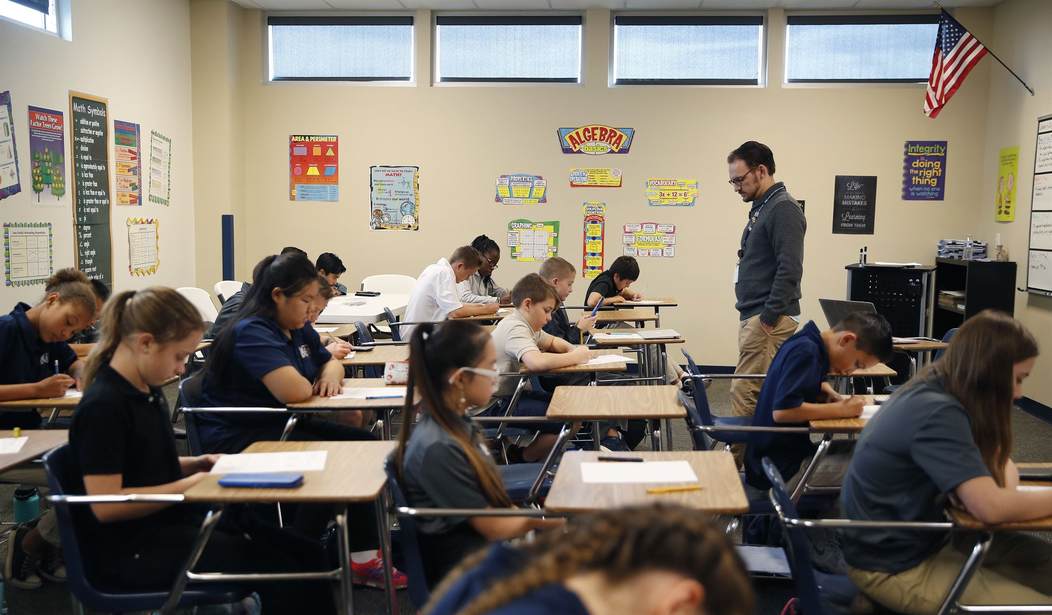National School Choice Week just ended, but while advocates of school choice celebrated its benefits last week, critics continue to hold onto the idea that “the scientific evidence on school choice is mixed.” Just last week, Chalkbeat’s Matt Barnum made the claim that the school choice research is “decidedly mixed.” But that is a myth.
Seventeen experimental studies of the effects of private school choice programs on student achievement exist in the U.S. today. As shown in this graphic, the majority of the 17 studies find statistically significant positive effects on student test scores, while only two detect negative effects. And it is important to note that the two studies finding negative impacts are first-year results.
Negative first-year test score effects should surprise no one because students and schools must adjust to the initial transitions. Indeed, a recent review of the evidence by researchers at the University of Arkansas reveals that the test score effects generally improve over time. For example, while the Louisiana Scholarship Program negatively affected student test scores in the first year, voucher students had already caught up to their traditional public school peers by the end of the third year.
Of course, we all know that test scores are not everything. So what about other outcomes?
Only one experiment exists that examines the effects of private school choice on graduation rates. Dr. Patrick J. Wolf and his team of researchers found that the private school choice program in D.C. increased graduation rates by 21 percentage points. That is huge.
But wait. What about civic outcomes? After all, traditional public schools were created in order to ensure that children from diverse backgrounds would learn how to get along with one another and become proper citizens.
As shown in this table, a peer-reviewed analysis of the evidence found that 11 rigorous studies link private school choice programs to students’ levels of tolerance and civic engagement. The majority of them found large positive effects. In one study, researchers from Harvard University and the University of Arkansas surveyed students from the experimental evaluation of the D.C. voucher program. In one question, the researchers asked the students to identify the group (such as Nazis or the K.K.K.) that they agreed with the least. Interestingly, the next three questions gauged tolerance levels by asking the students if they would allow members from the disliked group to: (1) have the right to free-speech, (2) run for president, and (3) live in their neighborhood. Interestingly, the responses to all three of those questions indicated that the voucher program increased students’ tolerance of others by over 50 percent.
Recommended
None of these studies detected negative effects on civic outcomes.
But it doesn’t stop there.
Only one rigorous study examines the effects of private school choice on crime. Using statistical methods known to replicate experimental results, one study finds that students using the Milwaukee Parental Choice Program are about half as likely to commit crimes as adults.
A recent systematic review of the literature finds eight rigorous studies on the effects of private school choice programs on racial integration. As shown in the graphic below, seven of the eight reveal that school choice racially integrates society overall. Despite claims made by anti-choice groups, none of these studies find that vouchers segregate society.
But what about the children that have parents who are not motivated enough to pursue a school choice option? What if all of the least advantaged children are the only ones left behind in the residentially assigned schools?
We have plenty of evidence on that as well. Twenty-four studies examine the effects on children that remain in traditional public schools. Because of the competitive pressures introduced by private school choice programs, 23 of the 24 studies find positive achievement effects for the children that do not even exercise choice. One study fails to detect any effects and, again, none of the studies find negative effects.
Now let’s set the record straight. The evidence suggests that private school choice improves test scores, high school graduation rates, tolerance, civic engagement, criminality, racial integration, and public school performance. The evidence on private school choice is far from mixed.
Anyone claiming that “the evidence on private school choice is mixed” is either uninformed or not grappling fully with the research. It is simply not true.

























Join the conversation as a VIP Member